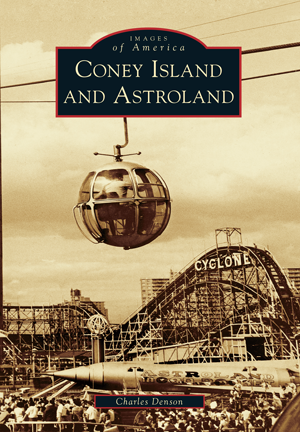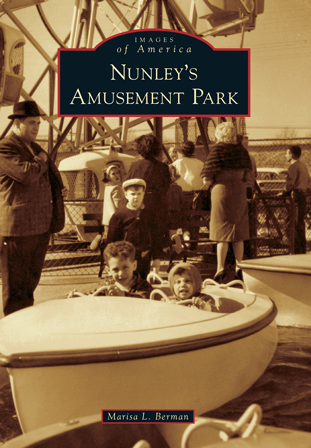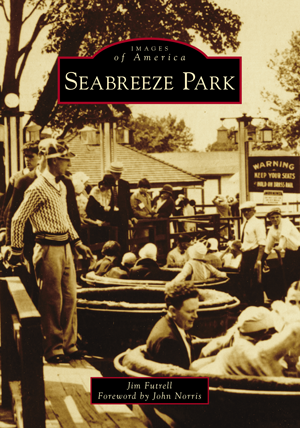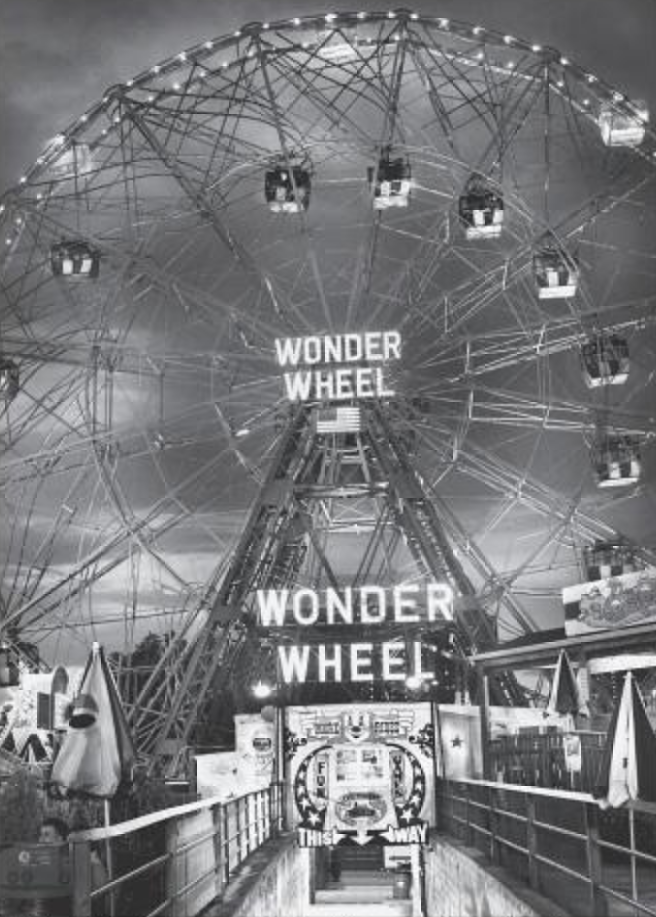
Many think of Coney Island as the iconic, family-friendly amusement park that remains a staple for summertime fun for New Yorkers and tourists alike. But few know the origins of how the Wonder Wheel Park came to be, and how one man with a patent changed the Brooklyn neighborhood forever. So, grab a hot dog and step back in time to where it all began…
Charles Hermann
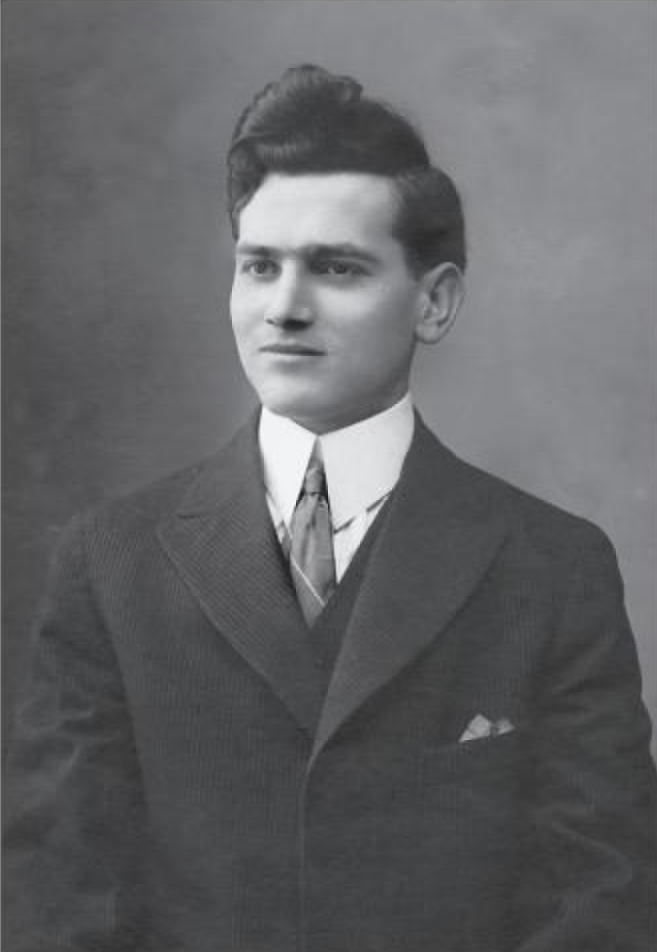
When 17-year-old Charles Hermann immigrated to America from Romania, he first sought out work as a machinist in various Navy yards and ironworks in New York and later in San Francisco. It was while he was out west that he realized that he wanted to create amusements, not for the money, but simply for the love of creating.
To advertise the Panama-Pacific International Exposition, Hermann and some friends took quite a strange approach. The gang, equipped with a donkey-drawn wagon, traveled across the country from San Francisco to New York. Their expedition garnered attention from many and they were soon dubbed the “4 Jackasses and a Donkey.” Little did Hermann know that New York mayor John Mitchell would take notice and offer him the opportunity of a lifetime.
A Brand New Coney Island
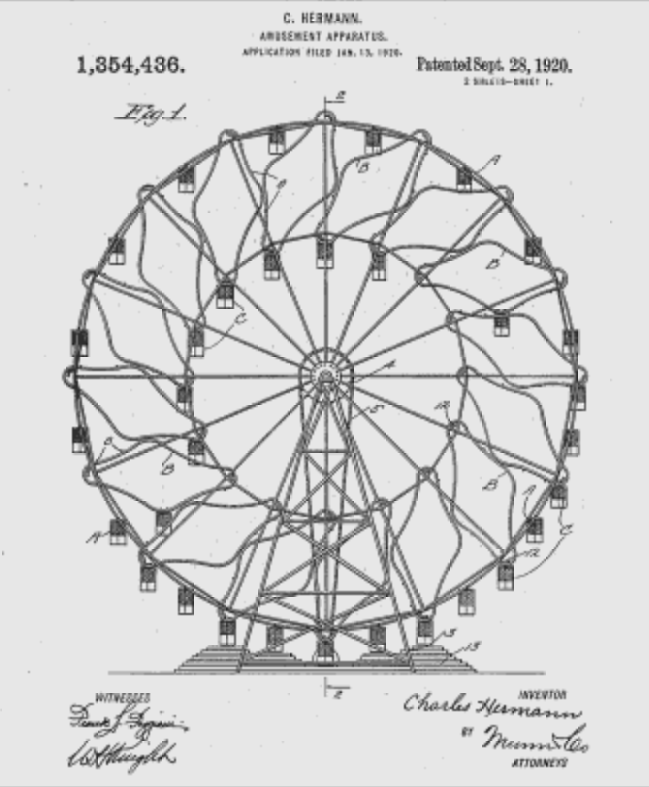
Hermann was granted approval of a patent in 1915 that would later become the iconic Wonder Wheel. Very similar to the Ferris Wheel, Hermann’s amusement ride featured open upholstered cars that rolled off the wheel and onto a platform where riders could enter and exit before the car reattached to the wheel.
After arriving and finding work in New York, Hermann met German immigrant Herman Garms who found interest in Hermann’s various inventions. Garms was equipped with a business savvy that Hermann lacked, so together they formed a corporation called Eccentric Ferris Wheel Company and set out for Coney Island to bring their amusement park dreams to fruition.
Related: The Hidden History of New York’s Hart Island
With the end of World War I and the Great Steel Strike of 1919, their project got off to a shaky start. Nonetheless, the Wonder Wheel was complete in 1920 and heralded the new Coney Island of the Roaring Twenties. Hermann decided to sell all of his shares of the company once he saw the wheel completed and left its operation in the hands of his business partner Garms.
Coney Island Today
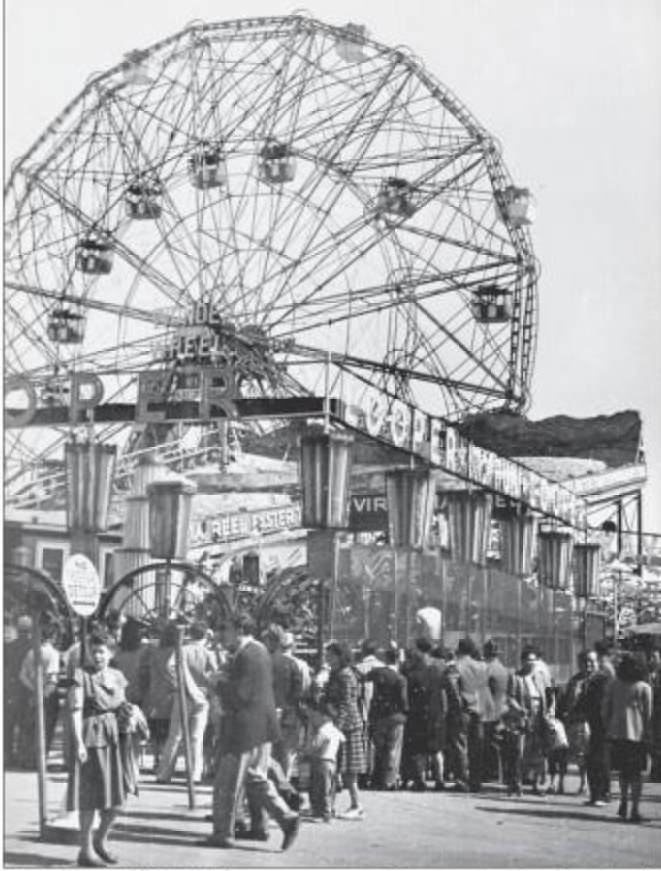
In the summer of 1983, Greek immigrant and one-time hotdog-peddler Denos Vourderis decided to buy the Wonder Wheel despite many longtime operators giving up and moving on. Four years after purchasing the Wheel, Denos bought all the property under the wheel and along Jones Walk fro nearly $1 million and created what would be Coney Island’s newest attraction: Deno’s Wonder Wheel Park.
When the Vourderis family took over the Wheel, it had fallen into complete disrepair and was in desperate need of a renovation. There was no owner’s manual and the only instructions were scrawled on an old piece of cardboard. The entire restoration took several years to complete, but once it was back in working order, The Wonder Wheel gained back its popularity and became a New York City landmark in 1989.
Three generations of the Vourderis family worked to keep Deno’s Wonder Wheel Park up and running, with the new generation looking for ways to expand. In 2019, the family purchased a large adjacent property and revealed plans to expand the park, ensuring that the next generation is ready for the future.
Want to learn more? Check out Coney Island’s Wonder Wheel Park and other similar titles seen below at www.arcadiapublishing.com.


